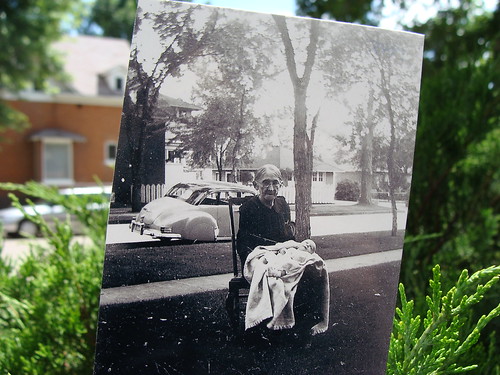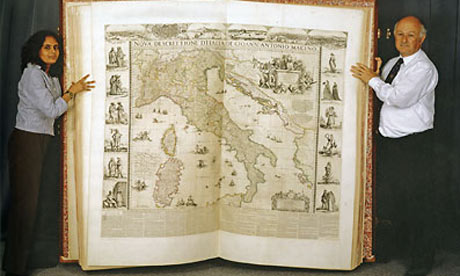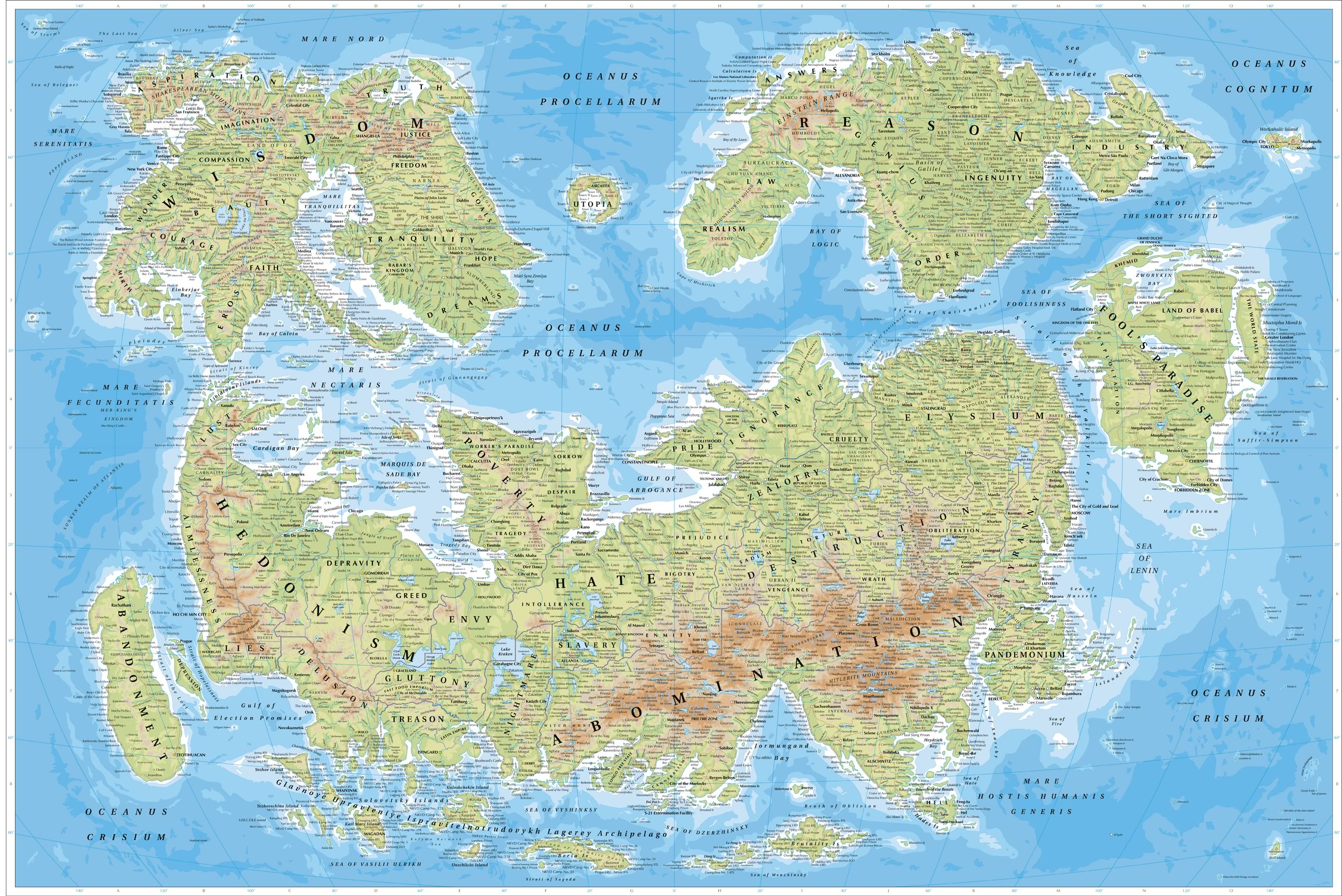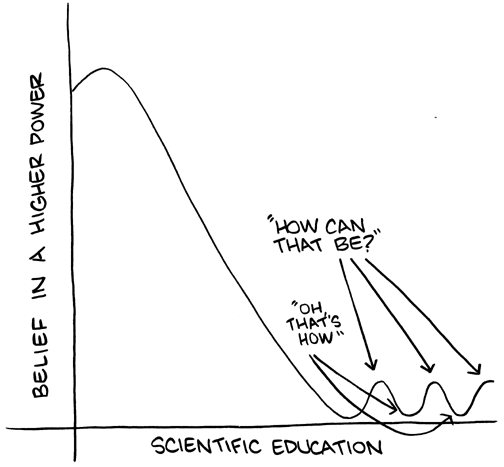Here's an awesome Flickr pool: Looking into the Past
Then-and-now photos have always been interesting, but Photoshop lets you create a more striking image yet. I might have to try some of this.
Via Millard Fillmore's Bathtub
Saturday, January 30, 2010
Flickr site - comparing past and present
Labels:
history,
photography
By
Scott Hanley
![]()
![]()
Friday, January 29, 2010
Friday photo
The Ames Monument honors a pair of brothers, Oakes and Oliver Ames, who played an instrumental role in creating the nation's first transcontinental railroad in 1869.
Oakes was a US Congressman from Massachusetts on the committee for railroads who ended up taking control of the railroad project. His brother Oliver became president of the Union Pacific RR, while Oakes took over the infamous Credit Mobilier company, a construction management company contracting with the UPRR; Credit Mobilier was, all along, a front to defraud investors in the UPRR.
The problem with making a profit in railroading is that you have to create a sustainable business; the beauty of making money in construction is that you get paid first and make your profit even if the railroad ultimately fails. This works even better if the railroad's board of directors are willing to pay inflated prices for your services, and when their board of directors contains the same faces as your board of directors, the negotiations often go smoothly. So Credit Mobilier would offer contracts at high prices; UPRR would pay them; and UPRR investors, believing that the railroad was taking care of its own bottom line, would not realize that their investments were buying far less railroad construction than they should have.
As insurance, Oakes took to cutting his friends in Congress in on the deal, selling Credit Mobilier stock at a steep discount; these gentlemen, in turn, grew less inclined to look critically at appropriations for transcontinental railroads. Eventually, the secret came out and Credit Mobilier became a huge scandal, implicating such prominent Republicans as Indiana's Schulyer Colfax and the future President James Garfield. Oakes died soon thereafter, in 1873, after "suffering" a Congressional censure.
Despite the fraud and the precarious fiscal position of the UPRR, and despite its own shoddy construction practices, the transcontinental railroad was a success, so the damage to the country was probably slight. In Ames's defense, when he took over the railroad had spent several years creating a meandering track of a few dozen miles. By 1869, the Union Pacific and Central Pacific had met up at Promontory Point and goods could travel between the east and west in a fraction of the time they could before. That was a tremendous benefit to the country, even if cranky obstructionists like Sitting Bull claimed otherwise.
The monument itself is a 60' high pyramid, placed at the highest point on the Union Pacific tracks (8,247'). However, the tracks have since been relocated and the Ames Monument was left where it is now, along a dirt road that doesn't go anywhere in particular. It's a pity, because it honors so many elements of the history of its day: the final push to incorporate the entire West into the United States; the rise of distance-destroying technology, especially railroads and the telegraph; the age of unbridled modern capitalism, and almost limitless political corruption of the day (if you think it's never been worse than it is today, you're mistaken).
Labels:
history,
photography,
the West
By
Scott Hanley
![]()
![]()
Thursday, January 28, 2010
Largest book in the world goes on show for the first time "It takes six people to lift it and has been recorded as the largest book in the world, yet the splendid Klencke Atlas, presented to Charles II on his restoration and now 350 years old, has never been publicly displayed with its pages open."
"It takes six people to lift it and has been recorded as the largest book in the world, yet the splendid Klencke Atlas, presented to Charles II on his restoration and now 350 years old, has never been publicly displayed with its pages open."
I might have written "therefore" rather than "yet."
Via the Maps-L listserv
Labels:
Archives,
books,
cartography
By
Scott Hanley
![]()
![]()
Wednesday, January 27, 2010
Blogging template
Here's how to do it:
Read moreThis is the title of a typical incendiary blog post
This sentence contains a provocative statement that attracts the readers’ attention, but really only has very little to do with the topic of the blog post. This sentence claims to follow logically from the first sentence, though the connection is actually rather tenuous. This sentence claims that very few people are willing to admit the obvious inference of the last two sentences, with an implication that the reader is not one of those very few people. This sentence expresses the unwillingness of the writer to be silenced despite going against the popular wisdom. This sentence is a sort of drum roll, preparing the reader for the shocking truth to be contained in the next sentence.
via Millard Fillmore's Bathtub
Labels:
communication,
culture,
humor
By
Scott Hanley
![]()
![]()
On loyalty
You gotta love lawyers - they'll stand by their clients no matter how hopeless it looks. Example: four men are caught with a bag of electronic surveillance gear, after pretending to be repairmen so they could get access to the telephones in a Democratic senator's offices. The men are well-known political activists, with views opposite to those of said senator.
The lawyer: "I think it was poor judgment. I don't think there was any intent or motive to commit a crime."
[Update: because he got caught before completing the task, O'Keefe's lawyer can say with a straight face, ""There was no wire-tapping, bugging or interfering with the phone system." ]
Tuesday, January 26, 2010
A linguistics scholar at Western Washington is hoping to recover unknown African history by translating an almost-forgotten writing system:
The Lost Script (at the Boston Globe)
Starting at least in the 10th century, African holy men who had converted to Islam and learned Arabic began to modify Arabic writing to enable them to spread the religion more easily. The resulting Ajami script - the name comes from the Arabic word for stranger - helped make Islam accessible to shepherds and other commoners who could not understand Arabic.
[...]
But officially speaking, it has also been widely ignored. Uncounted Ajami manuscripts squirreled away across the continent have gone untranslated, even unseen, by scholars. Even in African countries where it is still used, the script lacks government recognition. In French colonial archives from Africa, Ngom says, Ajami documents remain classified as “unreadable Arabic” - based on the mistaken notion that writing in African languages simply did not exist.
via the Archives Listserv
Labels:
Archives,
history,
language,
material culture,
writing
By
Scott Hanley
![]()
![]()
Sunday, January 24, 2010
On homeopathy
The Snark-of-the-Month award goes to PZ Myers for this line:
Of course, he is a homeopath. Maybe to him, a twitter award is like an infinitely diluted Nobel Prize, and is especially potent.
Geek heaven
Can this ever be topped? A mashup of Star Trek and Month Python:
via mental_floss
Saturday, January 23, 2010
Malware
I just received a message from a Facebook friend that purportedly connects to a YouTube video. However, the video doesn't play: it just pops up the message that I need to download Adobe Flash Player 10.37 in order to view it.
A quick Google search turned up this page, confirming that there is no Flash Player 10.37. It's a scheme to install spyware and adware on my machine.
While my internet practices probably aren't as safe as they should be, one of my rules is to never download a piece of software from the website that tell me I need it. In this case, I was looking for Adobe on the assumption that their Flash Player downloads don't contain spyware, while an unknown person's link just might.
Be warned.
Labels:
security,
technology
By
Scott Hanley
![]()
![]()
Friday, January 22, 2010
Tuesday, January 19, 2010
The Map of Humanity
Someone has put a lot of work into this "Map of Humanity," which is as fanciful and speculative as 15th century maps of the New World. Is Faith really on the continent of Wisdom? I kind of think they're as far apart as China and Hispaniola, to be honest about it. And how disturbing to see Ann Arbor as a neighbor to Salt Lake City (near 40 W, 60 N), either geographically or culturally.
From James Turner, the creator:
The continents of this restructuring rest upon the sea of the unconscious, the stormy basis of our thought. The land that emerges from it is broken into three main continents, each related to an aspect of the human mind: superego, ego, and id.
So it's a Freudian world. That would account for the three continents being so improbably distinct from one another. If I were to try something like this, I'd probably create one super-continent, where the nasty parts live cheek-by-jowl with out "higher" aspirations.
Via Dark Roasted Blend and the Maps-L listserv.
Labels:
cartography,
culture,
morality
By
Scott Hanley
![]()
![]()
Sunday, January 17, 2010
Friday, January 15, 2010
Friday photo
This is rather one of my favorite photographs. I was traveling through southern Utah, from a miserable winter at the Grand Canyon to my second summer working in Yellowstone. This would be my first season working in accounting, the department that would claim me for the next 16 years, and while I was unhappy to be assigned to Old Faithful Lodge instead of returning to Lake Hotel (damn you, Jay Antil!), I was more than glad to leave the South Rim.
I had no money for motels, but I did have a brand new sleeping bag, so when I got sleepy and noticed a Forest Service campground, I pulled in. I figured that since I didn't plan on setting up my tent, the "Campground Closed" sign didn't really apply to me. I threw the bag down on the ground, went to sleep, and woke up under 4" of freshly fallen snow. A little uncomfortable, since some of it had melted and seeped into the bag, but the clouds had already broken and the morning light was absolutely beautiful.
When I got going, I drove downhill for half an hour before encountering a sign that read "Elevation 7000." No wonder it was cold and the campground still closed! I'd had no idea I had climbed so high in the dark.
Labels:
nature,
photography,
the West
By
Scott Hanley
![]()
![]()
Sunday, January 10, 2010
Is the Kindle succeeding?
Via The Scholarly Kitchen:
Doing the Kindle Math — Does Amazon’s Opacity Conceal a Shameful Truth?
[V]ery few have seen fit to question the actual success of the current market leader, Amazon’s Kindle. That may be changing, as Amazon’s steadfast refusal to release sales figures and reliance on convoluted statistics is wearing thin. Blogger Mike Cane has gone so far as to call the Kindle “an outright fraud”.... Cane has called on publishers to start releasing e-book sales numbers, and suggests we’re going to be shocked at how low they are.
Labels:
books,
commerce,
publishing
By
Scott Hanley
![]()
![]()
Friday, January 8, 2010
Friday photo
Southeast Michigan has new snow today, but not this much.
Labels:
photography,
Yellowstone
By
Scott Hanley
![]()
![]()
Coywolves?
Ralph Maughan's Wildlife News reports on a draft research paper which finds that, in New England, a sample "coydog" hybrids doesn't contain any domestic dog DNA. Instead, they are hybrids of coyotes and eastern timber wolves (canis lycaon). Interesting stuff that I knew nothing about ....
Wednesday, January 6, 2010
The good ol' days
The 1960's were truly a golden age in the United States. Summers lasted forever, the weather was perfect every day, and I had the run of the block. At Vick's dime store, penny candy still cost a penny and a Snickers bar would set me back a nickel (a hefty 33% of my weekly allowance, but a worthy splurge on occasion).
Of course, I didn't know that I was born just after my Dad had suffered two years of unemployment, or that my comfortable little block was the last white bastion in an increasingly black neighborhood. I had heard mention of some unpronounceable substance that could make people do crazy things like walk out into the street and try to stop traffic, but I never saw any drugs. I never heard a word about the RFK and MLK assassinations in 1968; I was six.
John Oliver nails the wingnuts on their incessant lament on the loss of the America the once knew. When was this golden age? Over and over again, "When I was a kid ...."
| The Daily Show With Jon Stewart | Mon - Thurs 11p / 10c | |||
| Even Better Than the Real Thing | ||||
| www.thedailyshow.com | ||||
| ||||
Tuesday, January 5, 2010
Life, the universe, etc.
On the Maps listserv, Brendan Whyte of the National Library of Australia points to this atlas of the universe from the Hayden Planetarium:
Also check out the FAQ's, where you'll find interesting answers to questions like "Why should life be carbon based?", where Saavik Ford explains how carbon atoms have the ability to bond with four other atoms at once, thereby making long and complex molecules that are capable of causing interesting chemical reactions.
Labels:
cartography,
science
By
Scott Hanley
![]()
![]()
Monday, January 4, 2010
Tough jobs
It's part of a military guard's job to look menacing - like the slightest misstep will just piss him off and put your own sorry self in mortal danger. It helps if he's pulled duty in the middle of China's biggest snowstorm in the last 50+ years:






